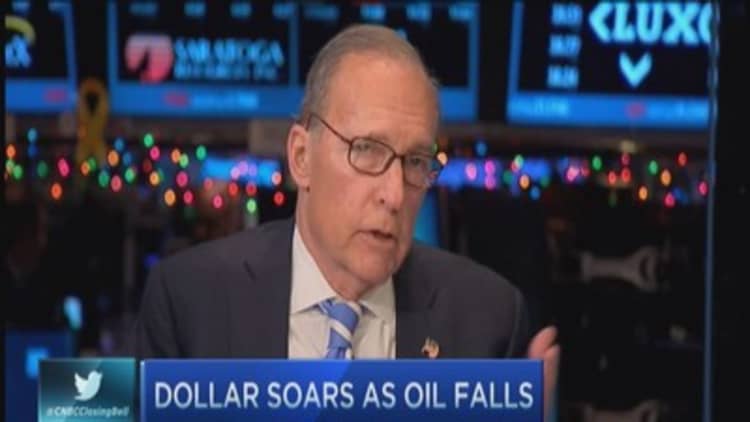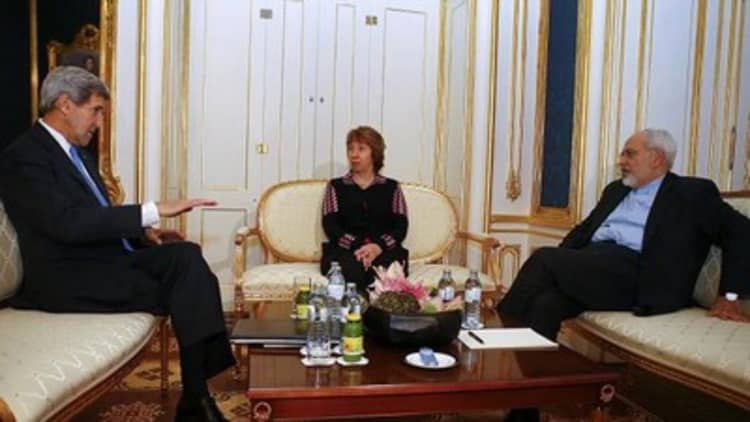Iran could be headed for an economic catastrophe if it fails to reach a deal on its nuclear ambitions, according to a report released Friday.
The so-called P5+1 countries—the five permanent United Nations Security Council members, plus Germany—again met with Iranian representatives in late November in order to negotiate terms for dismantling its nuclear program, but failed for a second time to agree on a deal.
Since economic sanctions took effect in 2012, Iran's gross domestic product has contracted by 8.6 percent, according to the report, from the Institute of International Finance. The falling price of oil has only furthered Iran's troubles. About 35 percent of the Iranian government's revenues came from oil prior to sanctions, according to the report, and Tehran is watching deficits mount.
Read MoreThe countries slammed worst by plunging oil prices
"If the sanctions stay, they could bring the Iranian economy to its knees in two years," said Garbis Iradian, deputy director of the IIF, who co-authored the report.
Iranian President Hassan Rouhani pledged to Iranian voters that he would attempt to get relief from economic sanctions and improve relations with the West. Iran's "supreme leader," Ayatollah Ali Khamenei, has shielded Iran's negotiating team from would-be hard-line attackers by publicly backing further talks.
The Iranian government needs the price of oil to be $148 per barrel to balance its budget for the 2014-2015 fiscal year, almost $50 higher than it needed before sanctions, according to the IIF, which is an association of banks, insurers, asset managers and other financial institutions that claims members in 70 countries.
Internationally priced Brent crude is trading below $70 a barrel, and the IIF predicts near-term prices will hover around $80.

Conditions will likely worsen for Iran if its economy remains closed to much of the rest of the world. While oil is plentiful—it has the second-largest reserves after Saudi Arabia—its petroleum industry needs foreign investment for new technology, and it needs customers.
In some ways the financial sanctions on the country have been worse than the oil embargo, said Iradian. Half of Iran's foreign exchange reserves have been frozen in foreign banks—though the P5+1 countries agreed to release a portion of them after the Vienna talks.
"So the gain from even a broader interim agreement—or almost any kind of deal—could huge," said Iradian. "It could still produce a major boost to the economy."



